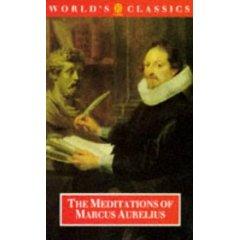| 2020ok Directory of FREE Online Books and FREE eBooks |
Free eBooks > History > Ancient > Rome > The Meditations Of Marcus Aurelius Antoninus
The Meditations Of Marcus Aurelius Antoninusby Marcus Aurelius Antoninus, Trans. By George Long  Download Book (Respecting the intellectual property of others is utmost important to us, we make every effort to make sure we only link to legitimate sites, such as those sites owned by authors and publishers. If you have any questions about these links, please contact us.) link 1 About Book Amazon.com One measure, perhaps, of a book's worth, is its intergenerational pliancy: do new readers acquire it and interpret it afresh down through the ages? The Meditations of Marcus Aurelius, translated and introduced by Gregory Hays, by that standard, is very worthwhile, indeed. Hays suggests that its most recent incarnation--as a self-help book--is not only valid, but may be close to the author's intent. The book, which Hays calls, fondly, a "haphazard set of notes," is indicative of the role of philosophy among the ancients in that it is "expected to provide a 'design for living.'" And it does, both aphoristically ("Think of yourself as dead. You have lived your life. Now take what's left and live it properly.") and rhetorically ("What is it in ourselves that we should prize?"). Whether these, and other entries ("Enough of this wretched, whining monkey life.") sound life-changing or like entries in a teenager's diary is up to the individual reader, as it should be. Hays's introduction, which sketches the life of Marcus Aurelius (emperor of Rome A.D. 161-180) as well as the basic tenets of stoicism, is accessible and jaunty. --H. O'Billovich Review ?Here, for our age, is [Marcus?s] great work presented in its entirety, strongly introduced and freshly, elegantly translated.? ?Robert Fagles Book Description Stirring reflections on the human condition from a warrior and emperor provide a fascinating glimpse into the mind and personality of a highly principled Roman of the 2nd century. Recognizing that suffering is at the core of life, he counsels stoic detachment in the face of inevitable pain, loss and death. Related Free eBooks
| Related Tags |












SEND A COMMENT
PLEASE READ: All comments must be approved before appearing in the thread; time and space constraints prevent all comments from appearing. We will only approve comments that are directly related to the article, use appropriate language and are not attacking the comments of others.